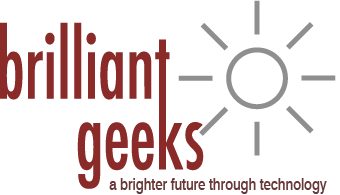Is your memorable password secure? Could a hacker quickly crack it? If your passwords consist of: numbers only or lowercase letters only or are shorter than seven characters you are at the highest risk for a cyber hacking. The most secure passwords include eight characters, numbers, upper case, lower case letters and punctuation. Top 5 most common passwords used by people include: password, 123456, qwerty, abc123, monkey These passwords are very commonly used. It would be cracked almost instantly. If you want to know how fast your password can be cracked go to www.howsecureismypassword.net and enter it. Let’s put it to the test with a weak and a strong password. johnsmith (It would take About 6 hours to crack your password ) all lower case johnsmith1 (It would take About 169 days to crack your password ) adding a number johnsmith1$ (It would take About 769 years to crack your password ) adding a symbol Johnsmith1$ (It would take About 71 thousand years to crack your password ) adding an UPPERCASE —– As if this wasn’t bad enough that we use insecure passwords, many websites as of late have been hit with data breaches. According to New York Times: A group of hackers, posted online the user names and passwords for what appeared to be 453,492 accounts belonging to Yahoo, and also Gmail, AOL, Hotmail, Comcast, MSN, SBC Global, Verizon, BellSouth and Live.com. The breach comes just one month after millions of user passwords for LinkedIn, the online social network for professionals, were exposed by hackers who breached its systems. The breaches highlight the ease with which hackers are able to infiltrate systems, even at some of the most widely used and sophisticated technology companies. The lesson we can learn from this is to not use the same password for every website because if one is compromised, the hackers use common sense to try the password on other popular services including Facebook, twitter, yahoo etc. In the recent months around 20% of our Brilliant Geeks customers have had their email accounts compromised to the point where their friends have received links to spammy websites advertising weight loss or work from home etc. Our recommendation is that you ACT NOW! Change your email password and any other password you might be worried about being compromised. The inconvenience of changing it now will save you a ton of headache of explaining to your friends or business partners as to why you sent them random links to click on. To make sure your password is secure enough go to www.howsecureismypassword.net and enter it. It is best that it takes your password at least 100 years to crack according to the calculation. If you have further questions you can always contact us at [email protected].
Month: July 2012
DNSChanger Malware Set to Knock Thousands Off Internet on Monday
What is DNSChanger? DNSChanger is a class of malicious software (malware) that changes a user’s Domain Name System (DNS) settings, enabling criminals to direct unsuspecting internet users to fraudulent websites and otherwise interfere with access to internet services. An estimated four million users were affected worldwide. To avoid these victims losing access to internet services, the FBI worked with the Internet Systems Consortium (ISC) to set up and operate a temporary but correct DNS solution. This temporary solution will be switched off on 9 July 2012. Users infected by DNSChanger will be unable to access internet services when the temporary DNS solution is switched off. How to check if you’re Infected? Go to http://www.dns-ok.gov.au/ (At the time of this writing the US version is being bombarded with people accessing it) If it all checks out fine you should see some green text saying: “You do not appear to be affected by DNSChanger” If you are one of the few infected you can either follow instructions on the page or Contact Brilliant Geeks and we’ll help you with it.
